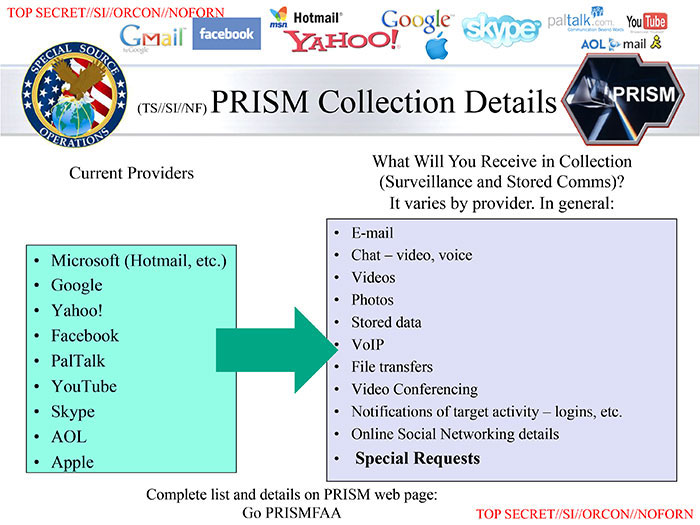
NSA Surveillance Programs: Associations, Advocacy Groups Raise Concerns
After bombshell stories broke this week about two separate secret programs run by the National Security Agency, reactions were strong across the board. Among the associations and advocacy groups speaking out are several focused on technology and free speech.
The federal government’s big-data efforts on behalf of national security, once hidden, are now on the public record, with documents to prove their existence. And associations and other nonprofit groups are speaking up.
On Wednesday, The Guardian blogger Glenn Greenwald revealed in an exclusive report that the National Security Agency (NSA) had ordered Verizon to give the government access to metadata from phone records for its Business Network Services products. (Time magazine has a good breakdown of the document and exactly what it means.)
On Thursday, the story got a new wrinkle, as The Washington Post reported that the NSA had been working directly with a number of technology firms to tap into their central servers to acquire security information about users in a program called PRISM. Most companies named, including Facebook, Google, and Apple, denied working with the government, leading the Post to update its story and blame the disparity on “imprecision on the part of the NSA author” who created the presentation that claimed the tech companies worked with the agency.
And on Sunday, the initial whistleblower, Edward Snowden, revealed himself to The Guardian, claiming that he took the actions he did out of a commitment to transparency. “You can’t wait around for someone else to act,” he told the newspaper. “I had been looking for leaders, but I realized that leadership is about being the first to act.” Snowden, who works for a federal contractor, is currently staying in Hong Kong because he fears he will be arrested by the U.S. government.
The revelations drew strong reactions throughout the media, including a tough editorial by The New York Times. Among the associations and advocacy groups that have spoken up in the wake of these reports:
American Library Association: Known for its stances on free-speech issues, ALA says it is “gravely concerned but unfortunately not surprised” about the surveillance programs. The group encouraged the public to research the issues brought to light by the recent news reports and expressed concern about surveillance in general. “Our community calls for public dialogue about how to open up [the Foreign Intelligence Surveillance Act] and other surveillance laws so that there can be true accountability and an improved balance between individual privacy and the need of government to investigate terrorism and other crimes,” Lynne Bradley, director of ALA’s Office of Government Relations, noted in a statement. “We need to make changes to our surveillance laws.”
Computer & Communications Industry Association: CCIA raised strong concerns regarding the “scope, wisdom, and legality” of the phone surveillance program, particularly the fact that it was carried out in secret. “Whether technically following the letter of the constitutionally suspect laws or not, top officials in national security and law enforcement bureaucracy need to take responsibility and come clean with the American people,” CCIA President and CEO Ed Black said in a statement. “And hopefully they or their successors will provide the leadership necessary to curtail such sweeping intrusions on our privacy and liberty in the future. The secrecy surrounding the entire process … is incompatible with a well-functioning free and open society.” CCIA also argued that reforms to the Electronic Communications Privacy Act proposed last year should be passed in Congress.
Electronic Frontier Foundation: The digital-rights watchdog group has called for the NSA to immediately end its domestic surveillance programs and for congressional oversight. “When the government was caught spying on American citizens in the 1960s and ’70s, Congress created the Church Commission to right the government’s wrongs. Recommendations from that commission resulted in legal reforms that ensured judicial oversight of surveillance programs,” EFF said in a statement. “Congress must act in a similar fashion and create a 21st-century Church Commission and enact strong legislation to rein in the executive branch and protect our communications.” The group also put together a detailed history of NSA domestic surveillance efforts in graphical form.
Has your association taken a public position on the National Security Agency’s surveillance programs? Let us know your take in the comments below.
Editor’s note: This story has been updated to reflect recent developments.
A document, acquired by the Washington Post, explaining the NSA's top-secret PRISM program. The companies listed have denied working directly with the federal government. (U.S. government file)






Comments